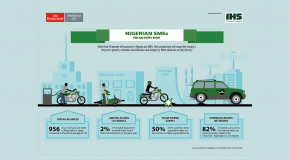Nigeria is now Africa’s leading economy, overtaking South Africa last year to become the continent’s largest nation in terms of GDP. Its commercial capital, the mega-city of Lagos, has surpassed the Egyptian capital, Cairo, to become Africa’s biggest city in terms of population. Combined with favourable demographics and a rising middle class, the country is now an investment hotspot for some of the world’s largest brands, from General Electric to Unilever, and its creative industries—most notably the film industry, Nollywood—are the continent’s most significant success story since the mobile money revolution.
Yet to take its rightful place among the world’s top emerging markets, the country must overcome a series of obstacles. Most pressing are economic diversification, job creation and a more effective conversion of growth into what matters most: rising incomes for the country’s 173m citizens. One change-maker for all three goals will be the country’s vast network of micro, small and medium-sized enterprises (SMEs). Famed for their entrepreneurism, Nigeria’s SMEs span everything from hairdressers to app developers, from welders to film production houses.
This study, combining qualitative interviews with SMEs, insights from opinion leaders, and country fieldwork, identifies the primary enablers and constraints shaping productivity—spanning policy, infrastructure, technology, energy and finance—and provides ideas to support SME productivity, enabling Nigeria to reach its development goals.







